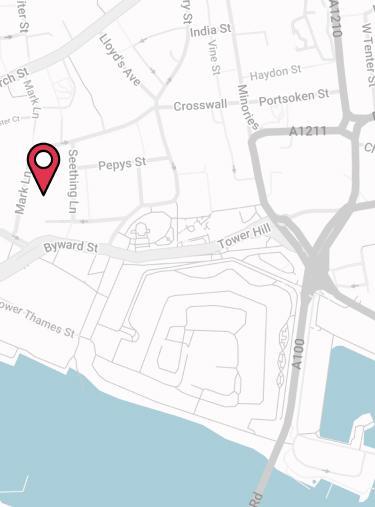In many countries, state-funded healthcare will be sparse. Some countries don’t have any kind of public health system, while other places will only allow new international residents to access their system once they’ve paid into the system for a set period.
This can be quite a shock for those used to the NHS providing free healthcare at the point of use.
For UK residents moving abroad, International Medical Insurance (IPMI) covers the cost of global healthcare. Depending on where you’re moving to, it either works in tandem with or completely separately from the state-funded health system in the country or countries you’re planning to reside in.
What Does Global Health Insurance Cover?
Global plans are far more comprehensive than those offering private healthcare solely in the UK.
This is because UK plans are designed to supplement the free healthcare the NHS provides rather than replace it entirely. For example, UK-only policies don’t offer coverage for standard maternity care or chronic conditions. The NHS continues to take care of these.
International plans, on the other hand, cover both such healthcare needs. They also typically cover:
- All expenses paid for in-patient, day-patient and out-patient treatment
- Specialists’ fees
- Drugs and dressings
- Home nursing
- GP costs
- Dentistry
- Front line medical services, such as Accident & Emergency or Intensive Care Unit
- Normal pregnancy and childbirth.
Most providers also offer a 24 / 7 emergency health telephone helpline, which can help you arrange urgent medical care under your plan while you’re overseas.
Do I Need IPMI Cover?
Firstly, it’s important to consider the potential cost of healthcare in countries without a social healthcare system. In many places anything from a simple trip to the doctor to an operation are fully chargeable health expenses.
![Complete UK guide to international private medical insurance]()
Depending on where in the world you are, the availability and above all the cost of healthcare can vary considerably. For instance, according to website MedicalTourism.com, a heart bypass in the USA would set you back $123,000. The same procedure in Malaysia, meanwhile, comes with a pricetag of $12,100.
If you needed to stay as an inpatient in a Canadian hospital, AXA PPP places the cost of this at £2,193 per night compared to a bill of £510 per night in Italy.
Even where healthcare isn’t as expensive, few could afford significant out of pocket expenses. Deciding to move or spend a significant amount of time abroad without some form of worldwide health insurance can therefore be a big risk.
How Much Does International Health Insurance Cost?
The biggest factor influencing the cost of premiums is where you’ll require international healthcare. Most providers break down coverage by region rather than on a country-by-country basis, so you choose whether you’ll need medical treatment:
- In Europe only
- Worldwide excluding USA
- Worldwide including USA.
Europe-only cover will be the cheapest option, whereas a worldwide plan including the USA will be the most expensive. This reflects the cost of healthcare in these different regions.
As policies are based on regions rather than countries, if you’ll be travelling regularly in a region you’ll have coverage for medical care wherever you are, even if you cross an international border.
There are also some personal factors that will impact the cost of premiums. For instance, when setting up your cover, the insurer will want to know your:
- Age
- Smoker status
- Current state of health / pre-existing conditions.
Additional Policy Options
When buying global health insurance, there are a variety of policy options to choose from that either increase or reduce how comprehensive your plan is. These options will in turn increase or reduce the cost of your premiums.
Depending on your provider and the ‘tier’ of policy you choose, you may find that the following options are add-ons to your coverage for an additional premium:
- Routine dental cover (e.g. checkups, fillings etc.)
- Routine optical cover (e.g. checkups and prescription glasses)
- An annual health checkup / MOT
- Vaccinations.
What Is An International Health Insurance Deductible?
An excess or a co-payment are two different types of deductible. These see insurers ask policyholders to contribute to the cost of their healthcare.
Excess vs Coinsurance
Both are essentially a sum of money you pay towards your treatment before the policy kicks in to pay for the rest. The higher the amount you’re willing to pay, the lower the cost of your premiums.
- Excess
An excess is the most common option. You typically set this up so you pay an agreed fixed monetary amount towards your healthcare, usually every time you make a claim.
- Co-payment
Opting for a coinsurance you agree to pay a percentage of the overall bill for your healthcare when you claim rather than a fixed cash amount.
Agreeing to a co-payment policy places more risk (i.e. more cost) on you as the policyholder. For example, imagine the $123,000 bill for a heart bypass in the USA mentioned above. A co-payment of 10% would lead to an out of pocket expenditure for this claim of $12,300.
Think carefully when choosing your deductible, working out just how much you can afford to pay towards your international healthcare. Naturally the more you are willing to contribute out of your own pocket the lower your monthly premiums.
Difference Between Travel Insurance and International Medical Insurance
While there are some similarities between them — both offer some form of international treatment, for instance — one is far more limited in terms of coverage than the other.
However, adding to the confusion between these two policies, an international healthcare policy will sometimes offer travel insurance as an add-on option for an additional premium.
Please be aware that they are very different policies. We’ve laid out the key differences in the table below.
The easiest way to choose between these policies is how long you’re planning to be abroad and what medical care you think you may need while you’re there.
For instance, most Travel Insurance policies limit overseas trips for which they’ll offer healthcare coverage to a maximum of 90 days. An International Health plan, on the other hand, covers those living abroad for longer periods.
Travel Insurance will also typically only pay for emergency medical care. It doesn’t usually offer coverage for routine treatments you may need while you’re overseas.
Can I Use My European Health Insurance Card (EHIC)?
Your European Health Insurance Card (EHIC) entitles you to the same treatment in a public hospital as a local would receive in countries across the European Economic Area. However, it’s not designed for long stays, only temporary visits such as holidays.
For longer stays, you generally require International Health Insurance to ensure you get the healthcare you need.
Moreover, with the UK leaving the EU from December 31st 2020, the EHIC will cease to be valid from 2021.
Can I Use The Local Public Health System Abroad?
This is a complicated question and ultimately depends on where you’re staying. Each country has its own rules for foreign nationals living and working in their countries in terms of who can claim for state-funded healthcare.
Often, it will be a contributions-based system, so you can only access public healthcare if you’ve paid local taxes for a set period of time.
However, if you’re travelling somewhere like the USA, which has an almost entirely private healthcare system, you won’t get any help from the state. You’ll have to meet your healthcare costs entirely out of pocket if you do not have a suitable international health insurance policy in place.
Also, some countries may not grant visas to those who cannot prove that they have independent health insurance and won’t be a burden on the local public system. Check carefully before you travel as to whether you need private health cover for your visa to be valid.
Can You Get Short-Term International Medical Insurance?
Yes, certain providers now offer short-term Expat Health Insurance for stays abroad of less than a year.
Previously, you had to buy an annual policy regardless of the length of your trip. However, this has now changed and there are several providers on the market which will provide you with cover for stays abroad of between 3 and 11 months.
Who Are The Top UK International Medical Insurance Providers?
We are a team of specialist independent financial advisers who have access to all of the UK’s best International Health Insurance providers. Some of the top companies we work with include:
- Allianz
- April International
- AXA PPP Global Healthcare
- Bupa Global
- Cigna
- Freedom Worldwide Insurance.
It is vitally important you do your research and take the time to compare quotes from all of the leading providers.
Each insurer has their own unique underwriting philosophy which will determine the most suitable and cost-effective option for your needs depending on the coverage you most value, your chosen location and your current state of health.
Compare Global Health Insurance Quotes & Get Specialist Advice
With something as important as your health, you don’t want to take a gamble. This is especially true if you’re moving abroad, where the cost of healthcare could be considerable if you don’t get your plan right.
We’ve got a team of specialist advisers who will compare all the leading healthcare providers from across the market to find you the best cover for your circumstances.
Why Speak to Us?
When it comes to protecting your health, you deserve first-class service. Here’s why you should talk to us:
- There’s no fee for our service
- We’re an award-winning independent insurance broker, working with the leading UK insurers
- You’ll speak to a dedicated specialist from start to finish
- 4100 and growing independent client reviews rating us at 4.92 / 5
- Claims support when you need it most
- Authorised and regulated by the Financial Conduct Authority. Find us on the financial services register.
If you are considering International Health Insurance and need some help, give us a call on 02074425880 or email help@drewberry.co.uk for fee-free advice.







![Bupa Health Insurance [Review] Image](/_next/image?url=https%3A%2F%2Fmedia.drewberry.co.uk%2FProject-Penguin-Provider-logosBUPA.png&w=480&q=75&dpl=2070)


